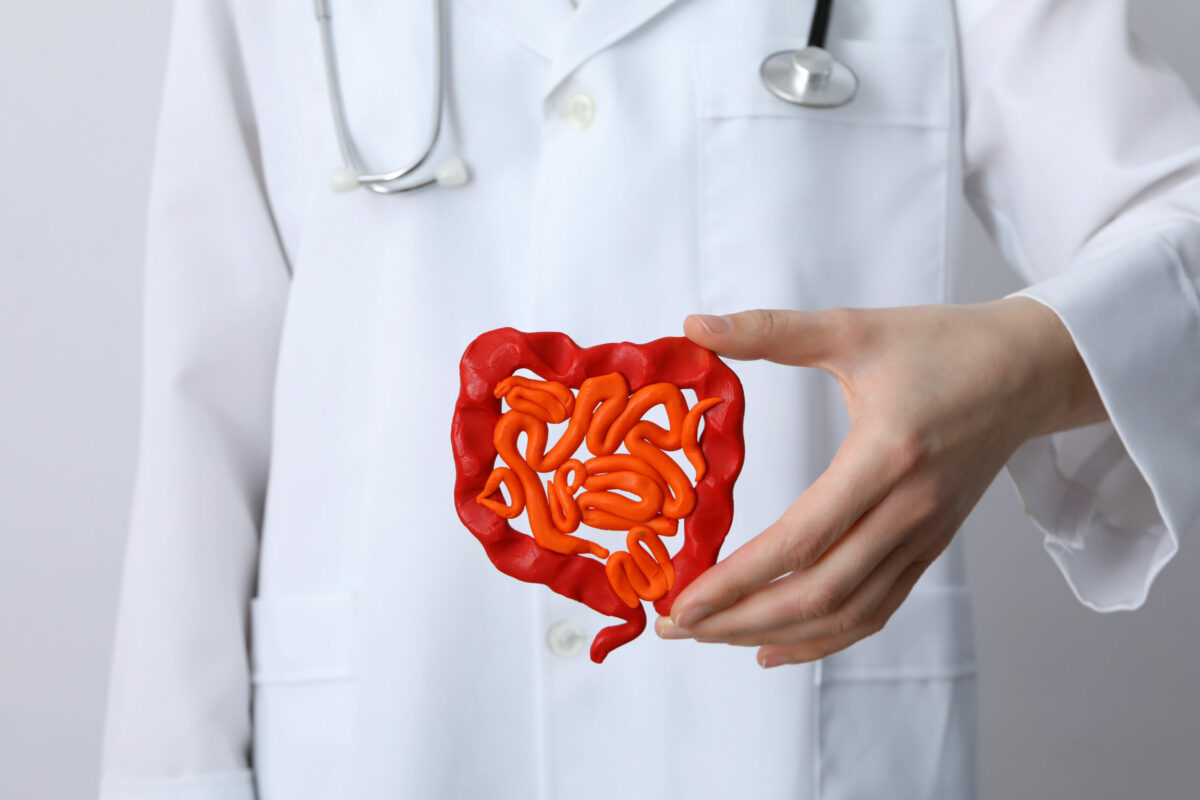An inflammation of the small intestine is called enteritis. However, it also may include the stomach (gastroenteritis) or colon (enterocolitis). This health condition is usually caused by viral, bacterial, or parasitic infections (such as food poisoning, stomach flu, stomach bug, or others). In any case, enteritis may also occur due to radiation, drugs, or certain diseases.
What is Enteritis?
The most common causes of this disease are viral and bacterial infections. A person may experience fever, swelling, and abdominal pain when the small intestine is inflamed and irritated. As a result, it may negatively affect your digestive system and provoke nausea, diarrhea, and vomiting. In addition, acute enteritis often happens suddenly and lasts for several days while a chronic disease can cause persistent enteritis but it is less common.
Mostly, this condition is mild and can be managed at home but there is a risk of experiencing dehydration due to diarrhea and vomiting. Therefore, it is recommended to replace lost fluids with electrolyte formulas and other liquids to lessen the symptoms.
In rare cases, doctors prescribe antibiotics or you may need hospitalization to treat dehydration. If you experience enteritis for long periods, you may notice some complications but it is also rare.
Symptoms
Usually, the symptoms that patients experience are different. It depends on the severity of the condition, your age, weight, other existing health conditions, and others. Check below some enteritis symptoms:
- Loss of appetite
- Diarrhea
- Bloody discharge in stool
- Stomach cramps or pain
- Nausea
- Vomiting
- Body aches
- Fever
If you notice any of them, do not hesitate to consult your physician.
Complications
Acute Enteritis
One of the most common acute enteritis complications is dehydration. It can be mild or severe, which can be managed easily by adults but children and the elderly are at dangerous risk. Those who experience severe dehydration should consult a doctor immediately. Check below some dehydration symptoms:
- Hypotension (low blood pressure)
- Fast heart rate
- Dry mouth
- Dark urine
- Constipation
- Lack of tears
- Sunken eyes
- Weakness
- Dizziness
- Fatigue
- Headaches
Chronic Enteritis
In such cases, can cause long-term side effects. Mostly, inflammatory bowel disease or radiation therapy can provoke this type of enteritis. However, this can happen in rare cases. Check below some long-term adverse reactions:
- Abdominal cramps or distention
- Chronic diarrhea
- Anemia
- Nausea
- Partial obstruction of the small intestine
In case you experience any of the complications listed above or any others, immediately inform your doctor about them.
Causes
Enteritis is classified by experts in four parts and each one has its own cause.
Infectious Enteritis
This is one of the most common enteritis types and is provoked by viruses, bacteria, or parasites. Furthermore, these parasites, bacteria, or viruses are very contagious and can spread from one person to another easily through contaminated food or water. Check below some examples of viruses:
- Norovirus
- Adenovirus
- Rotavirus
- Astrovirus
Examples include:
- Shigella
- Salmonella
- coli.
- jejuni.
- difficile.
- aureus.
Check below for some parasites examples:
- Giardia
- Cyclospora
- Cryptosporidium
Inflammatory Enteritis
An autoimmune condition usually provokes primary inflammatory enteritis and it impacts the digestive system. Thus, your body’s defense (immune system) mistakes food from the digestive tract for infectious agents and provokes an inflammatory response. However, these conditions can be a chronic problem. Check below some examples of diseases:
- Eosinophilic enteritis
- Ulcerative enteritis
- Celiac disease
- Microscopic enteritis
- Crohn’s disease (also known as regional enteritis)
- Lupus enteritis
In any case, the misuse of some drugs and cause intestine inflammation. Examples include:
- Antibiotics
- Cocaine
- Alcohol
- Nonsteroidal anti-inflammatory drugs (NSAIDs)
Radiation Enteritis
Secondary inflammatory enteritis also called radiation enteritis happens due to exposure to radiation. Several therapies are used to treat cancer but may impact healthy cells as well. Examples include Radiation therapy and Chemotherapy.
Usually, those who experience these therapies, notice radiation enteritis for several weeks. However, some patients may experience this enteritis type for months or even years. Furthermore, chronic radiation enteritis can cause serious damage to your small intestine.
Ischemic Enteritis (IE)
Ischemic enteritis also known as intestinal ischemic syndrome happens when the blood supply to the intestines is blocked. Small intestine ischemia is a rare but serious health condition that may lead to enteritis and all typical symptoms.
Diagnosis
Physicians usually perform a physical examination and ask you about symptoms and medical history. However, they may take a sample of your poop to check the exact cause of enteritis such as the type of infection you have. In case they are not sure that is the exact cause they may also perform certain tests. For example upper endoscopy or X-ray test. Ask your healthcare professional if you have any questions.
Treatment
Commonly, rest and rehydration are enough to treat this health condition. Rarely, a bacterial infection may require treatment with antibiotics. Moreover, your doctor will stop radiation therapy if this is the cause or prescribe a direct treatment if enteritis is provoked by an autoimmune condition. In addition, if you experience chronic enteritis, physicians may prescribe some anti-inflammatory medicines.
Prevention
One of the most preventable enteritis is infectious because it is one of the most common enteritis types. Good hygiene practices can help to prevent the spreading of bacteria, viruses, or parasites to others. Examples include:
- It is advised to wash your hands after the bathroom and before contact with food.
- You should also clean kitchen tools after contacting them with raw meat or produce.
- Prepare thoroughly shellfish and meats.
- While traveling to foreign countries use bottled water
- It is also recommended to stay at home for 48 hours if you are sick and symptoms disappear.
Frequently Asked Questions
Does enteritis go away on its own?
This condition usually goes on its own and disappears within 7 days. However, if you experience chronic enteritis it may come and go. If you are experiencing enteritis for long periods, it may be serious. Immediately contact your healthcare professional if enteritis symptoms last more than they should.
When should I seek medical care for my enteritis?
- Symptoms do not improve more than 4 days
- You are vomiting or your child has diarrhea for more than 24 hours
- Dehydration
- You have a fever that is higher than 102 F or 39 C degrees
- Blood in the vomit or poop
- Sudden and severe stomach pain
If you experience any of them, you should see a doctor right away.
What food is good for enteritis?
- Pasta
- Rice
- Lean meats cooked with little fat
- Eggs
- Low-fat prepared fish
- Cooked vegetables
- Fresh fruits
- Sugar-free cereals
Consult with your doctor for more details.




